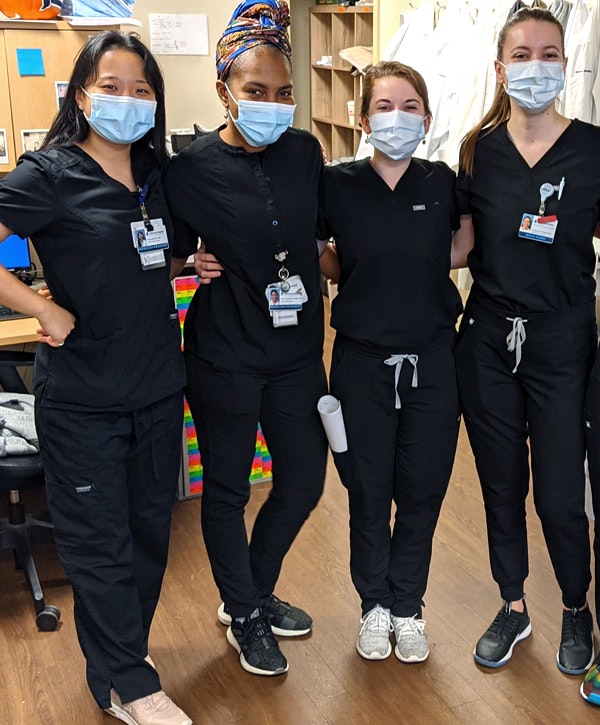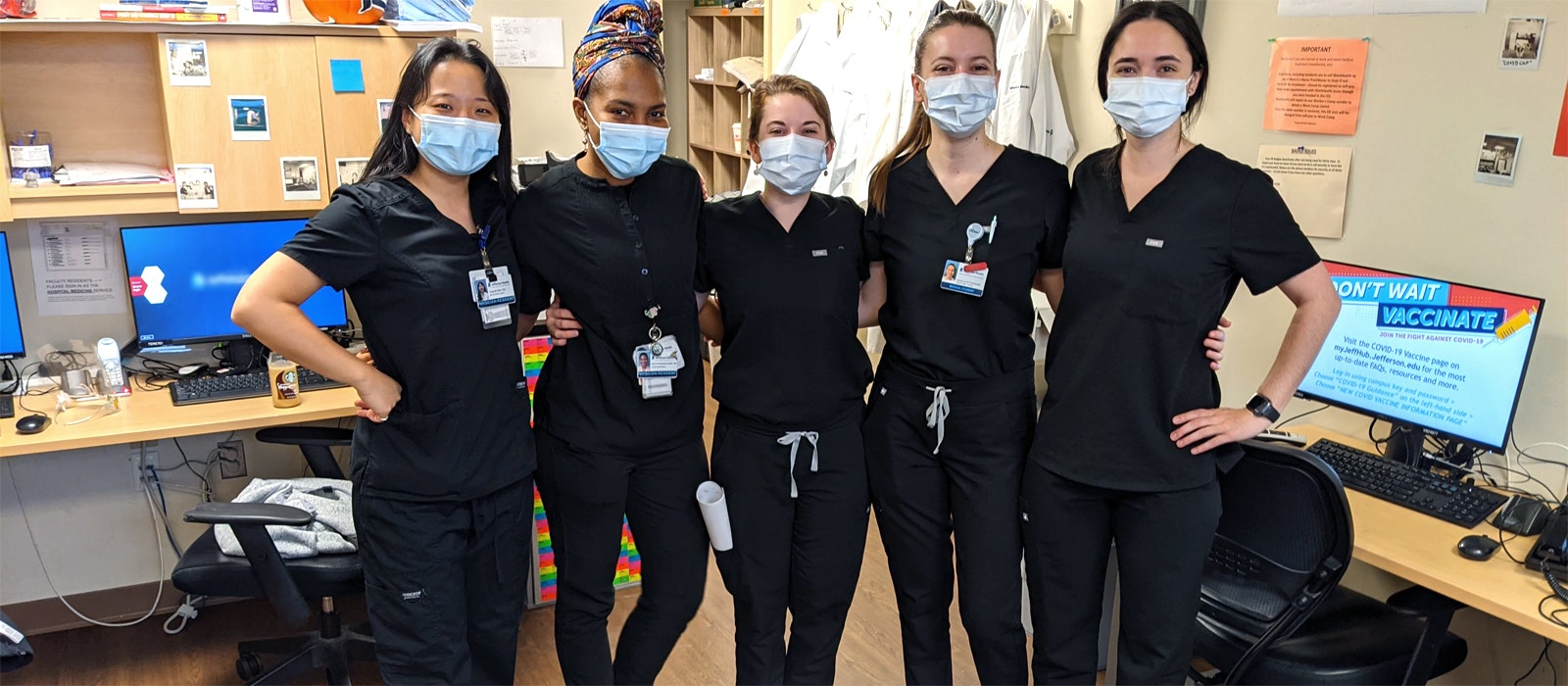Improving Opportunities for New Americans Act
Priority Bill Spotlight


Many immigrants, including those who resettle through the refugee program, arrive in the U.S. with specialized training, education, or experience, particularly in fields like healthcare that are critical to America’s recovery from the COVID-19 pandemic. Unfortunately, these internationally trained professionals face significant barriers to securing employment and having the opportunity to fully contribute their skills and training.
Representatives John Katko (R-NY) and Jason Crow (D-CO) have reintroduced the bipartisan Improving Opportunities for New Americans Act (H.R. 4179). This bill directs the Department of Labor, in coordination with other agencies, to extensively examine the barriers to employment for newly arrived immigrants and to provide policy recommendations for how to help them secure skill-appropriate employment opportunities in the United States.
Highly educated and trained immigrants could help fill"Now Hiring: Putting U.S. Workers Back to Work in Good Jobs & Catalyzing Equitable Economic Recovery"Upwardly Global
5.5 million mid- to high-skilled job openings
in essential industries.
Barriers to employment prevent more than a quarter of internationally trained professionals from fully contributing their skills and experience
New research from Upwardly Global, a nonprofit organization that works to eliminate employment barriers for immigrant and refugee professionals, has identified more than 5.5 million mid- to high-skilled job openings in essential industries like healthcare, engineering, IT, finance and accounting, and logistics.
Highly educated and trained immigrants are a critical part of the workforce solution needed to fill these essential jobs. However, while many new immigrants come to the U.S. with high levels of education1 and specialized skills, they often end up unemployed or underemployed, in part because of barriers to employment that lead to significant skill underutilization.
Skill underutilization is especially pronounced for immigrants who were educated abroad. Analysis of Census data from 2019 by the Migration Policy Institute (MPI) found that more than one million internationally educated immigrants were unemployed or working in so-called low-skilled jobs. This group constituted about 24% of the internationally educated immigrant labor force.
Skill underutilization has cost the U.S."Untapped Talent: The Costs of Brain Waste among Highly Skilled Immigrants in the United States"Migration Policy Institute
$39.4 billion in foregone earnings and
$10.2 billion in lost tax revenue.
Unnecessary barriers to employment have significant economic and workforce consequences
Immigrants with international credentials (particularly those who come as refugees) with often face distinct barriers to employment,. Complicated laws and inaccessible licensing processes prohibit some immigrants from securing professional licenses, even if they have the requisite education and training. Some immigrants with degrees and credentials earned abroad struggle to have those credentials recognized in the U.S. Research also shows that language barriers, education gaps, and lack of access to professional networks can hinder immigrants from fully utilizing their skills.
Skill underutilization for immigrants is a national economic and workforce problem with negative impacts across the economy and the country. MPI estimates that skill underutilization among immigrants, regardless of where they were educated, cost these professionals $39.4 billion in foregone earnings and cost the U.S. $10.2 billion in lost tax revenue. This money, which could be spent to boost local communities and fund government programs, is instead needlessly left on the table.
These barriers not only hinder economic growth, but also prevent immigrants from using their training and skills to benefit their communities and even save lives. Many immigrants working in industries that have been critical to responding to and recovering from the COVID-19 pandemic, like healthcare, have not been able to fully exercise their skills and training. Separate MPI analysis found that approximately 165,000 internationally educated immigrants with health-related degrees were underutilized in 2017, limiting the potential contributions of this critical workforce. Keeping tens of thousands of healthcare professionals stuck on the sidelines or relegated to routine tasks, when they could be treating patients and saving lives, is a tremendous waste of potential, especially in the midst of a national health emergency like the COVID-19 pandemic.
The bipartisan Improving Opportunities for New Americans Act(H.R. XXXX)
would help allow new Americans to fully contribute their valuable skills and training to the workforce.
The Improving Opportunities for New Americans Act would identify and address barriers to employment
On June 25, 2021, Representatives Katko and Crow reintroduced the Improving Opportunities for New Americans Act (H.R. 4179). This legislation would require an extensive interagency study, led by the Department of Labor, to analyze the employment history of new immigrants and compare their employment in the U.S. to their employment in their native country. The study would examine barriers to employment in the U.S., catalog resources available to help newly arrived immigrants apply their experience and credentials, and recommend policies that can reduce those barriers.
This research would be incredibly helpful in crafting policy. The U.S. does not generally track how immigrants fare once they have arrived in the U.S. in terms of economics, career advancement, integration factors, etc.3 A thorough study built on government data and interagency insight, in coordination with data already collected by relevant nonprofit organizations and State agencies, would provide timely and reliable guidance for legislators.4 This could help Congress make real progress in passing smart, fact-based legislation to improve the immigration system, and could serve as a model for more research and analysis of the real outcomes of U.S. immigration policy.
Congress should pass and President Biden should sign the Improving Opportunities for New Americans Act to help allow new Americans to fully contribute their valuable skills and training to the workforce.
Get in touch with us:
Andrew Moriarty
Deputy Director of Federal Policy
- According to the Pew Research Center, education levels for immigrants have been climbing in recent years and are generally on par with the U.S.-born population. As a point of comparison, analysis from the Cato Institute found that recent immigrants to the U.S. were as educated as new immigrants in Canada. Policy makers often look to Canada as a model for skilled immigration; it’s worth noting, however, that the Cato Institute also found that immigrants who came to the U.S. through family sponsorship and the Diversity Visa program also had relatively high levels of education.
- According to the language filed in the previous Congress, the bill directs the Secretary of Labor to coordinate with “the Secretary of State, the Secretary of Education, the Secretary of Health and Human Services, the Secretary of Commerce, the Secretary of Homeland Security, the Administrator of the Internal Revenue Service, and the Commissioner of the Social Security Administration,” along with “elevant non-profit organizations and State agencies”
- For comparison, the Canadian government does much more extensive tracking and reporting on outcomes for immigrants after their arrival, particularly economic outcomes and labor market integration.
- The work of nonprofit organizations provides an early indication of how these policies and programs can advance the full inclusion of immigrants into our workforce. For example, Upwardly Global reports that new immigrants who complete their training programs go from being un- or under-employed to earning a starting salary of nearly $60,000, working in high-demand fields like STEM & healthcare (70% of placements), and adding $358 million to the economy each year.
Tell the world; share this article via...
Get Involved
We need your help to move America forward. Learn what you can do.